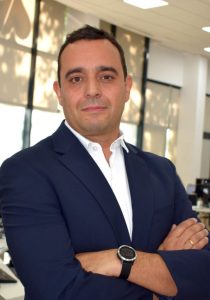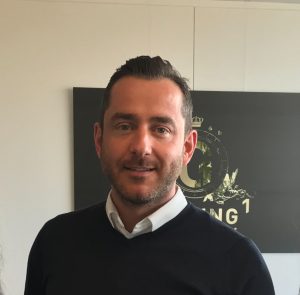After commencing a long-awaited licensing window on April 1, the Kansspelautoriteit revealed that it has received 28 individual operator applications to join Dutch gambling’s new regulated online gambling marketplace.
Due to officially commence from October 1, 2021, Rene Jansen, Ksa chairperson, stressed that “the intention of the law is to channel players from illegal providers to legally reliable providers”.
Mario Benito, chief commercial officer at R Franco Group, Sylvain Boniver, COO at Gaming1, and Alexia Smilovic Rønde, chief regulatory officer at Relax Gaming, continue the conversation.
CB: Could you talk us through some of the challenges when it comes to new market entry? As well as what obstacles could lie ahead for those seeking success in the country?

Alexia Smilovic Rønde: There’s a myriad of considerations to be made when entering a new market with the usual adaptation of product, processes and operations. However, the key challenge with the Netherlands is linked to the uneven entry condition for the operators laid down by the cooling-off period.
Not all the operators will be able to get in the starting blocks at the same time and this will create a different dynamic of operators who are not really experienced with working in a market of that scale.
The industry has gone for big bang market entries with 50 operators getting their licence on the same day. Some other jurisdictions have opted for a “first come, first served” type of market entry, but again, they were not on the same scale of potential as the Netherlands and so it could result in some imbalances in the initial phase.
Being able to remain eligible for regulated operations for both operators and suppliers imposes a new level of preparation and activity, until all the stakeholders can obtain their licence.
“Such competition will no doubt be increased further with the entrance of bigger names”
Therefore, for suppliers, a solid, proven track record of compliance is essential to fully nurture the opportunity available in the Netherlands. It can be a minefield for the unprepared and impedes future growth.

Mario Benito: It is important to be flexible and to shape an offering very carefully to account for differing regulatory practices in any given territory. You can never be too diligent in this regard and it is of paramount importance. That is particularly the case now within Europe, where we foresee a variety of maximum stake limits being imposed in the future.
One of the biggest challenges as we see it is capturing the attention of a number of different demographics. Within the supplier portfolio it is essential that you offer a choice of experiences that appeal to different generations, each with varying expectations of what compelling gaming entertainment consists of.
Sylvain Boniver: The cooling-off period that will allow participants to continue in-play as regulation is put in place will certainly influence entrance to outsiders and affect the competition that emerges. With legislation in force, we’ll see operators get their licences in a few months – with the expectation that around 25-30 operators will enter then plenty of land-based casinos, such as Jack’s, Holland Casino, Fair Play, as well as Bet365 and additional operators that have, as yet, not focused on the Netherlands before.
Such competition will no doubt be increased further with the entrance of bigger names in the second wave – which we should expect in April next year – with a number of Europe’s top tier brands on the roster.
Again, how that effects younger, native brands looking to make their mark on the market remains to be seen – as it will total about 70 operators entering the market. For local brands looking to make their mark, I would certainly encourage them to make use of their regional advantages to deliver exactly what players are looking for.
CB: To conclude, what will be the main ingredients to ensure long-term sustained success in the Netherlands?
MB: I believe there are three main elements, as with any new market entry: great games, close player observation and strong communication with the operator. Fail in any one of these regards and success is highly unlikely.
It’s also important to adjust your development pipeline in accordance with the new regulatory environment I believe we will start to see developing right across Europe.
“The igaming industry there is likely to be one of the more dependable and consistent in Europe”

SB: I anticipate the first few months following the Netherland’s regulated launch will see a number of new big-name entrants fighting for market share from the incumbents. The majority of players will likely stick with the brands they know – so operators will need to establish a strategy that can present their brand as one that can with resonate with players’ values, and therefore, migrate over from their existing casino.
Of course, at Gaming1, we only focus on players in licensed markets, so this will be our first time entertaining Dutch players, which means we’ll be in the same boat as many others. Our plan will be to follow our usual approach that has worked so well for us – we partner with local land-based operators to leverage their local positioning and establish their online presence.
In five years, I anticipate the market will be worth €1.2bn (which will see it double) – although this will be a survival test for many smaller players, given taxation and marketing restrictions, which may affect their ability to compete.
ASR: Assuming the initial requirements have been met in order to be up and running in the first place, ensuring that your content offers sufficient diversity and differentiation is key. There will always be the AAA titles that enjoy global success, but specifically, localised game content that resonates particularly well with Dutch players will be just as important.
With their rich legacy of gaming in the land-based sector, the familiar format of domestically popular games is likely to translate well online. We have proprietary and partner content within our portfolio with a specific Dutch appeal, which we believe will resonate with players there.
It is a patience game, but there are growth opportunities available for operators who can meet the licence application conditions eventually, the market has room for many entrants in its launching phase and likely afterwards as well.
Once licensed, the operators will be able to market themselves and get reacquainted with Dutch players, there should be a lot of creativity around that.
For suppliers, beyond the opportunity to grow together with the licensed operators it also offers the opportunity to access new operators that have not yet started operating online locally, but possess strong brand recognition and loyalty.
The Dutch market looks set to adopt the early days of local market liberalisation profile with substantial diversity of operators and suppliers supported by favourable conditions. The igaming industry there is likely to be one of the more dependable and consistent in Europe.










